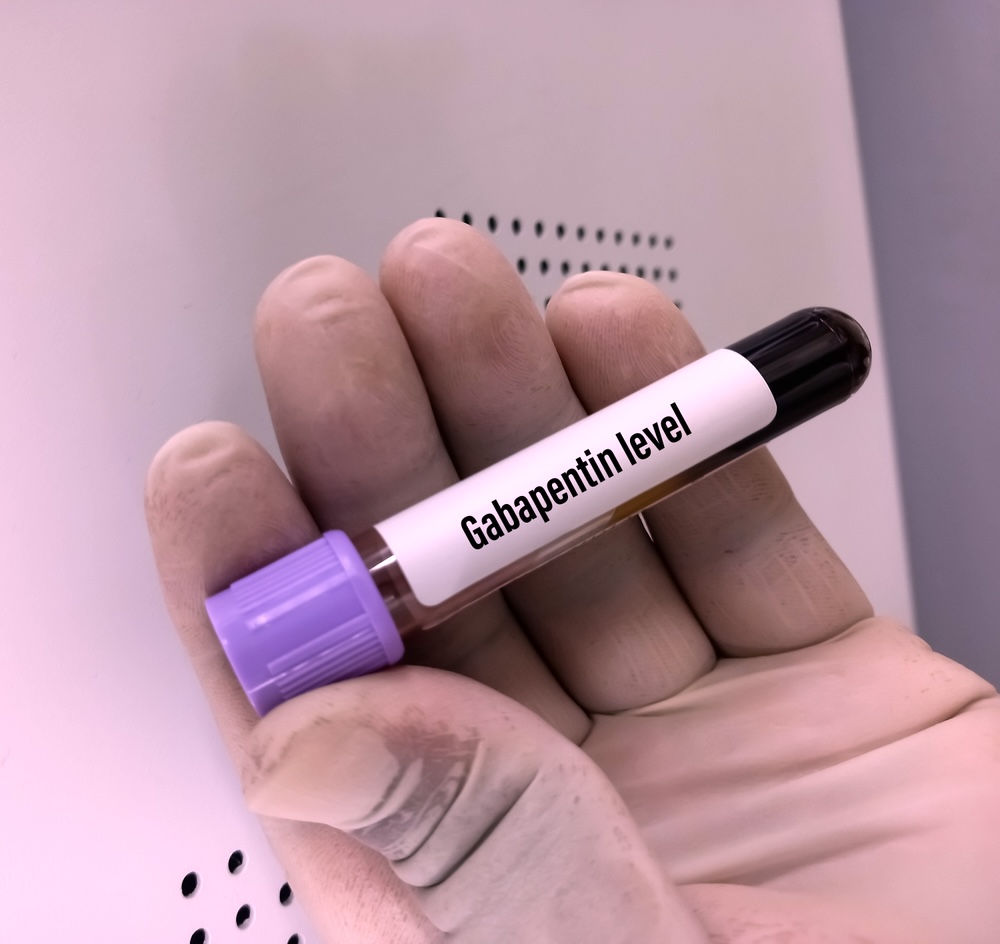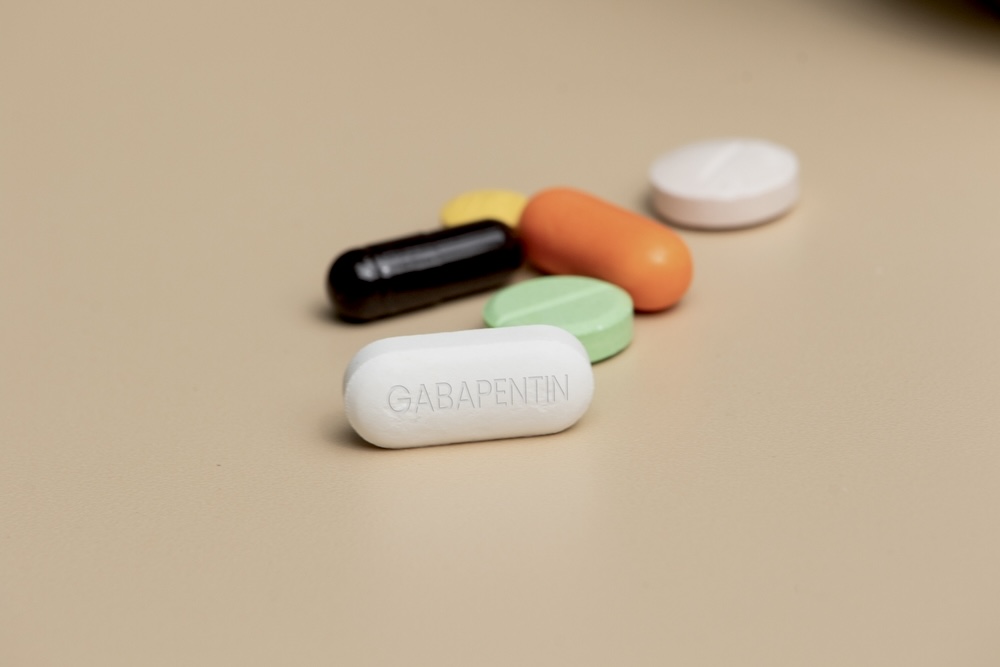If you’ve used gabapentin (brand name Neurontin), you might be unsure about how long it stays around in your body or whether it could show up in a test. Maybe you’re preparing for drug testing soon, or perhaps you want to understand what happens after you stop taking this anticonvulsant drug—an anticonvulsant medication prescribed for specific conditions. Whether your doctor prescribed it for restless legs syndrome, nerve pain, to treat seizures, or you’re concerned about a possible side effect, it’s only natural to want clear answers.
This blog is here to help you understand how gabapentin behaves in your body and how long it might stay. Gabapentin is a prescription medication. We’ll cover what gabapentin is used for, if it shows up on tests, and how to get help if needed. By the end, you’ll have a clear understanding of what to expect.
What Is Gabapentin Used For?
Gabapentin is a medication prescribed for several conditions. It’s most commonly used to manage nerve pain, seizures, and restless legs syndrome. Gabapentin is also prescribed as part of pain management, particularly to treat neuropathic pain and nerve related pain. Doctors often prescribe it as an alternative to more addictive substances because gabapentin is not classified as a controlled substance in many places. However, it can still be misused by some people.
Gabapentin works by mimicking gamma aminobutyric acid (GABA) in your brain, a chemical that helps calm your nerves. How does gabapentin work? It binds to certain sites in the nervous system, reducing neuronal activity and stabilizing nerve signals, which helps manage conditions like seizures, neuropathic pain, and anxiety. For chronic pain, gabapentin can bring much-needed relief, especially when other medications don’t work. Gabapentin is part of a class of antiepileptic drugs, and while it is effective for seizures, it is important to monitor for serious adverse reactions and increased risks such as suicidal behavior. It’s also helpful for people dealing with withdrawal symptoms from alcohol and other drugs. Gabapentin prescriptions have increased over time, raising concerns about the potential for gabapentin misuse, including recreational use and the need for supervised withdrawal and treatment if misuse occurs. When discontinuing gabapentin, gabapentin withdrawal and gabapentin withdrawal symptoms—such as seizures, anxiety, and insomnia—can occur, so medical supervision and proper tapering are essential.
Gabapentin even comes in both extended release formulations and immediate release gabapentin. Extended release formulations are designed to release the drug gradually over time for prolonged effects, while immediate release gabapentin acts more quickly but for a shorter duration.
Does Gabapentin Show Up on a Drug Test?

The answer can depend on the type of test being conducted. Gabapentin is not typically included in standard drug panels unless specifically requested. Standard drug tests do not usually detect gabapentin, but specialized drug tests can identify its presence if there is a specific reason, such as suspected misuse or legal investigations. The type of test affects this significantly.
The half-life of gabapentin is five to seven hours, meaning it takes that amount of time for half of the drug to be eliminated from the body. Gabapentin’s half life is considered relatively short, which is why multiple doses per day are often needed to maintain its effectiveness. It typically takes several half lives—usually around 4 to 5—for the drug to be fully eliminated from the system, and this process can be affected by kidney function. Typically, gabapentin is fully cleared from the system within 48 hours. However, high doses of gabapentin may prolong its elimination time and extend the detection window. Additionally, hair testing can detect gabapentin use for up to 90 days, making it a useful method in legal or workplace investigations.
Gabapentin is not a federally controlled substance, but some states have classified it as a schedule v controlled substance due to concerns about misuse.
Factors Affecting How Long Gabapentin Stays in Your System
How long gabapentin stays in your system isn’t the same for everyone—it can vary quite a bit depending on several important factors. One of the biggest influences is your kidney function. Since gabapentin is primarily eliminated through the kidneys, people with healthy kidney function will clear the drug more quickly, usually within about two days. However, if you have impaired kidney function or kidney disease, gabapentin’s half-life can be significantly extended, and the medication may stay in your system for four days or even longer. This is why medical professionals often adjust the dosage for those with compromised kidney function to avoid potential adverse effects.
The amount of gabapentin you take and how long you’ve been taking it also play a role. Higher doses and long-term gabapentin use can lead to the drug lingering in your body for a longer period. Your individual metabolism is another factor—some people naturally process medications faster or slower than others, which can affect how long gabapentin stays in your system.
Drug interactions are another key consideration. Certain other medications, such as antacids, can reduce how much gabapentin your body absorbs, while drugs like morphine can increase the risk of side effects. Always let your healthcare provider know about all the prescription drugs, over-the-counter medications, and supplements you’re taking to help minimize potential drug interactions and ensure safe gabapentin use.
Physical dependence can develop with regular gabapentin use, especially at higher doses or over extended periods. If you stop taking gabapentin abruptly, you may experience withdrawal symptoms such as anxiety, insomnia, nausea, or even seizures. To minimize withdrawal symptoms and reduce the risk of complications, it’s best to work with a medical professional to gradually taper your dose.
When it comes to drug testing, these factors can influence how long gabapentin is detectable. Urine tests can typically detect gabapentin for up to four days after your last dose, while blood tests have a much shorter window—usually up to 24 hours. Hair tests, though rarely used for gabapentin, can show evidence of the drug for up to 90 days. Remember, gabapentin isn’t usually included in standard drug panels, but specialized drug testing can detect gabapentin if needed.
Understanding these factors can help you use gabapentin safely and effectively, while also being aware of the risks of gabapentin abuse, potential drug interactions, and the importance of proper medical supervision. If you’re concerned about how long gabapentin stays in your system, are experiencing withdrawal symptoms, or need support for gabapentin addiction, don’t hesitate to reach out to a medical professional or addiction treatment center for guidance.
How Long Does Gabapentin Stay in Your Urine?
Urine tests are one of the most common ways to detect drugs. Gabapentin elimination and gabapentin clearance depend on kidney function, with individuals who have normal kidney function clearing gabapentin from their system more quickly. A gabapentin-specific urine test could reveal its presence of gabapentin for 1 to 4 days after your last dose. However, a general drug test usually won’t search for gabapentin unless the tester includes it on purpose.
How Long Does Gabapentin Stay in Your Blood?
Blood tests are less common for detecting gabapentin. The drug is likely to stay in your bloodstream for only 5 to 7 hours after the last dose. However, in cases of severe kidney impairment, gabapentin may remain in the blood for a longer period. After that, most of it will be processed and out of your blood. Because the detection window is so short, blood tests are the least reliable way to find gabapentin.
How Long Does Gabapentin Stay in Your Saliva?
Saliva tests are rarely used to detect gabapentin. However, if tested within a short window of up to 24 hours, it is possible for gabapentin to show up in your system. After that, this method is not very reliable.
How Long Does Gabapentin Stay in Your Hair?
Hair tests have the longest detection window and can test for up to 90 days. Even after the body works to eliminate gabapentin, traces of the drug can remain in hair for an extended period. However, it’s almost unheard of to check for gabapentin using a hair follicle test unless there’s a specific reason. Even though the drug can stay in your hair for an extended time, it’s just not a standard procedure.
These windows can vary based on your body and health. Your kidney function, dosage amount, and even your metabolism all play a part.
How to Get Gabapentin Out of My System?

Maybe you’re wondering how to get gabapentin out of your system fast. While healthy habits, like staying hydrated, eating balanced meals, and exercising, can support your body’s natural processes, they won’t instantly rid your body of the drug.
Discontinuing gabapentin should be done gradually under medical supervision to reduce withdrawal symptoms and prevent serious complications such as seizures.
If you’re dealing with more serious issues, like dependency or misuse, professional guidance is essential. While experts and medical professionals do not quite consider gabapentin addictive, there have been many instances when people misuse the drug.
Best Substance Abuse Rehab in Lake Forest, CA
Are you struggling with gabapentin abuse and it’s affecting your life? Addiction treatment centers provide tailored programs to tackle both the symptoms and deeper causes of substance misuse. Comprehensive care often includes personalized therapy, group sessions, and support for co-occurring disorders. This way, you get help treating not just the addiction, but the underlying factors causing it.
Zoe Behavioral Health specializes in addressing addiction while also supporting mental health challenges. Our expert team and facility works to make the process as seamless as possible, connecting you with the tools and therapies needed for effective recovery.
